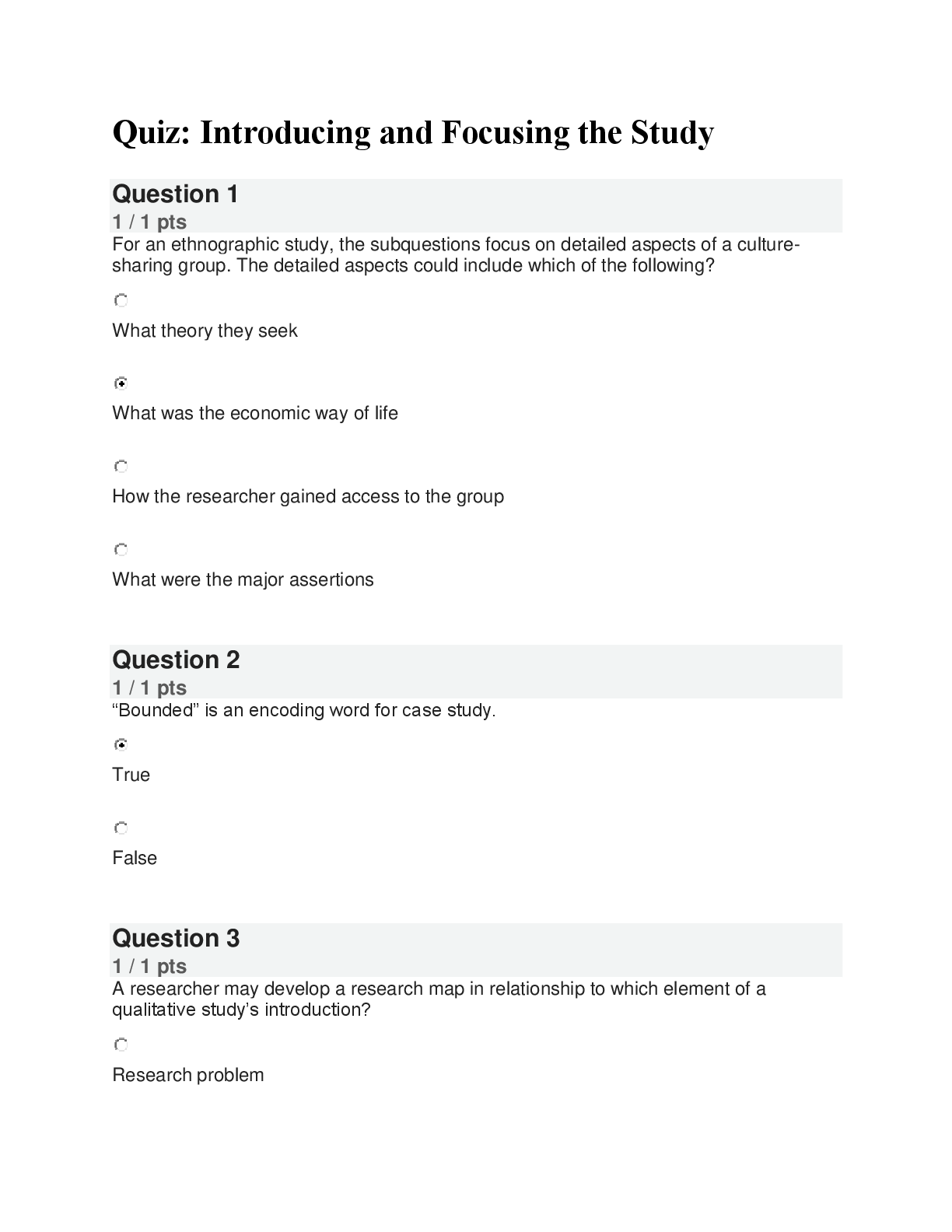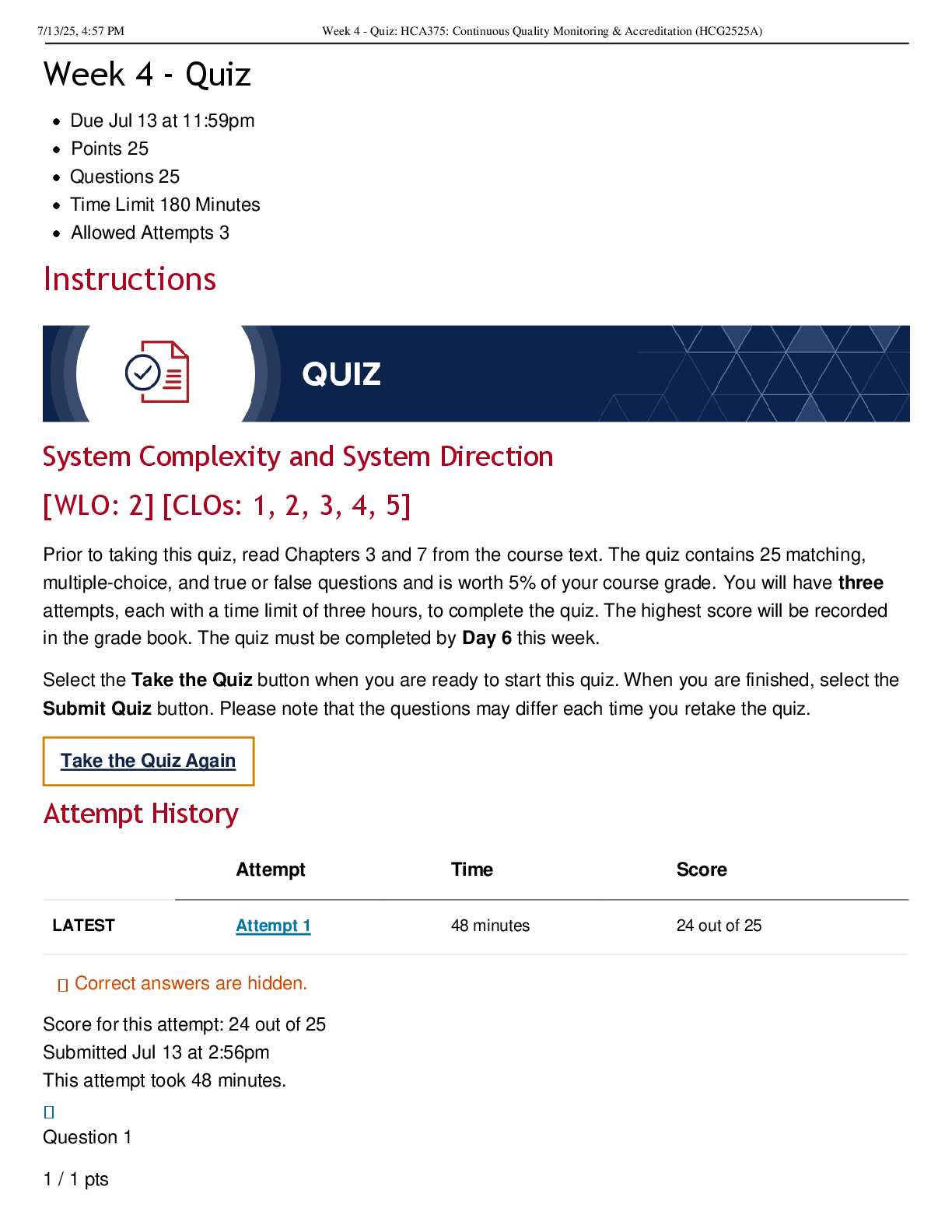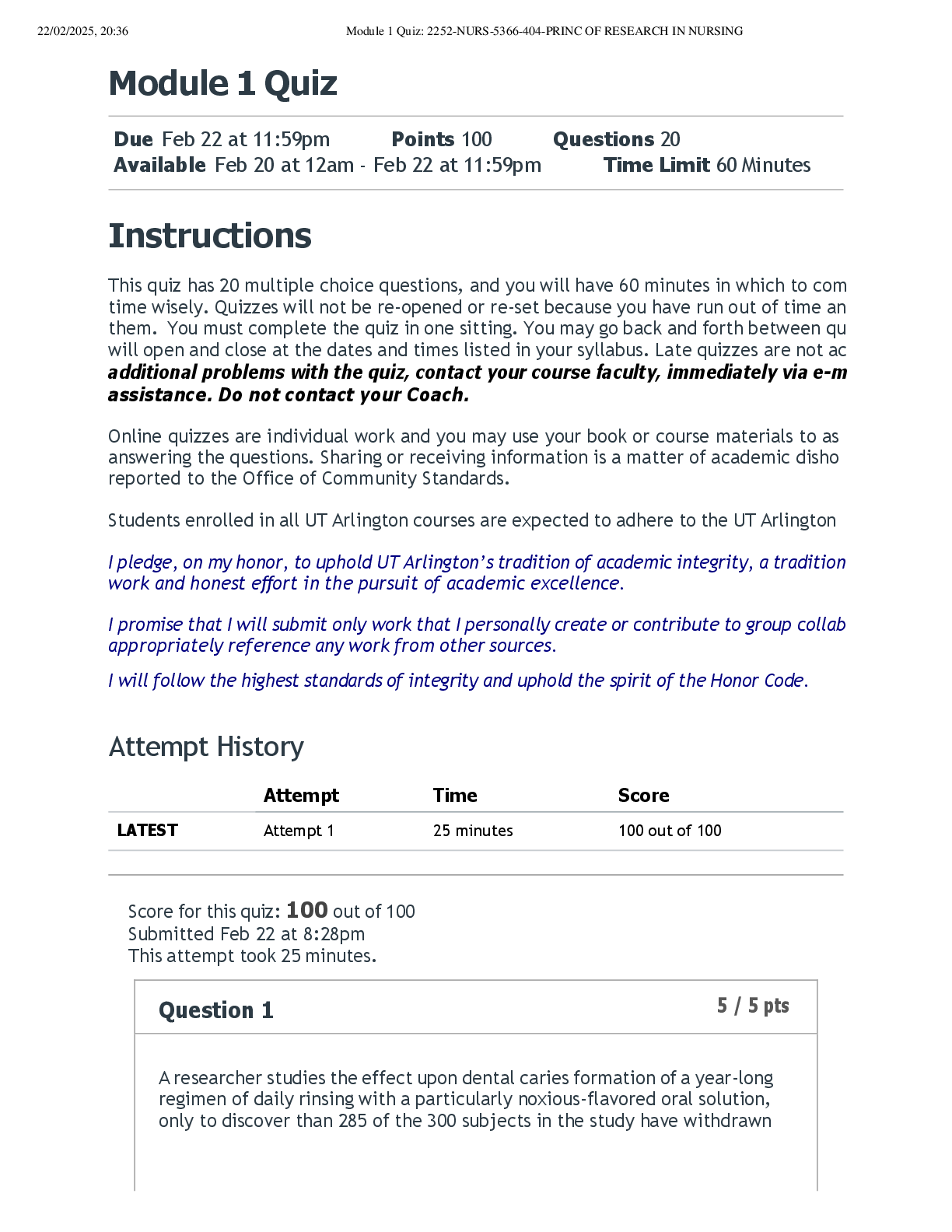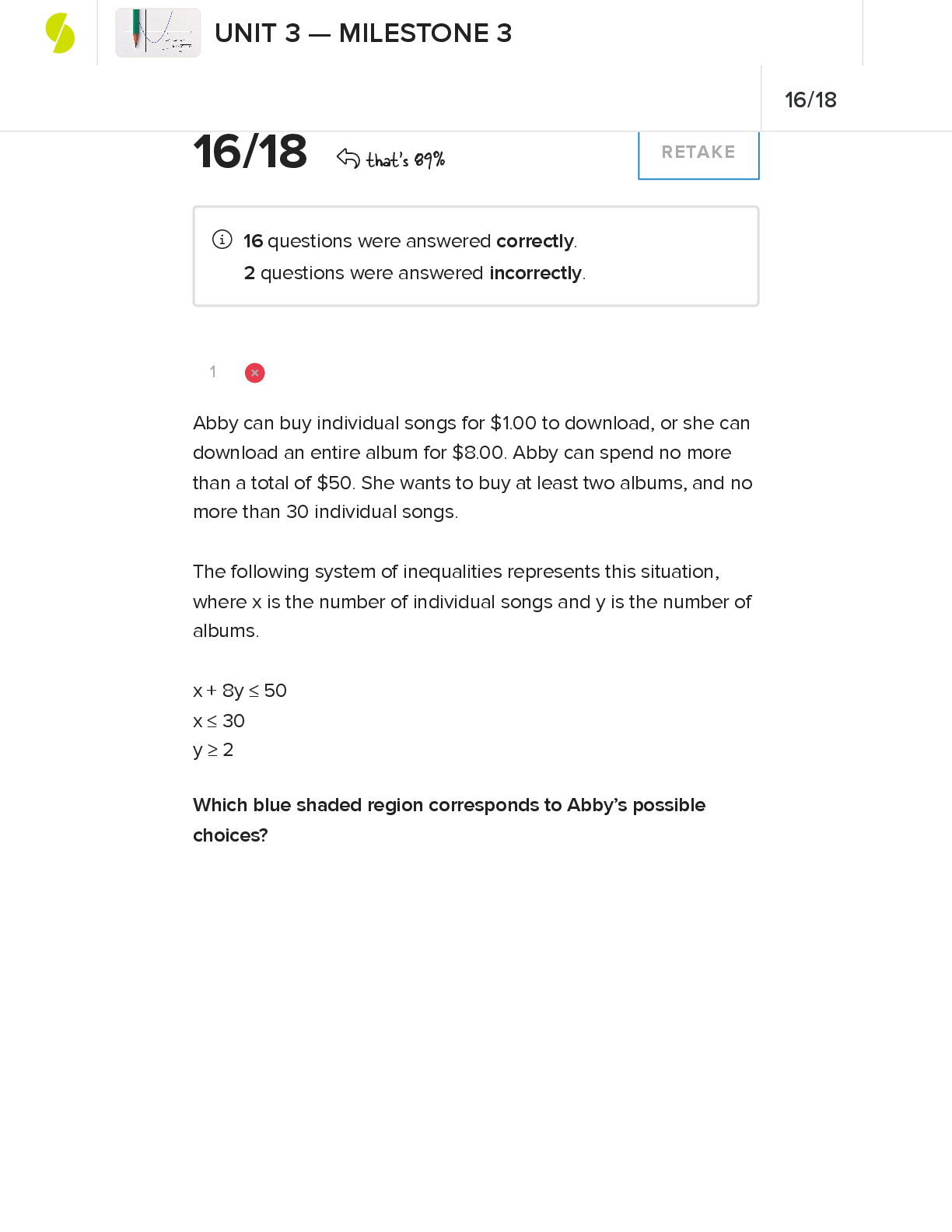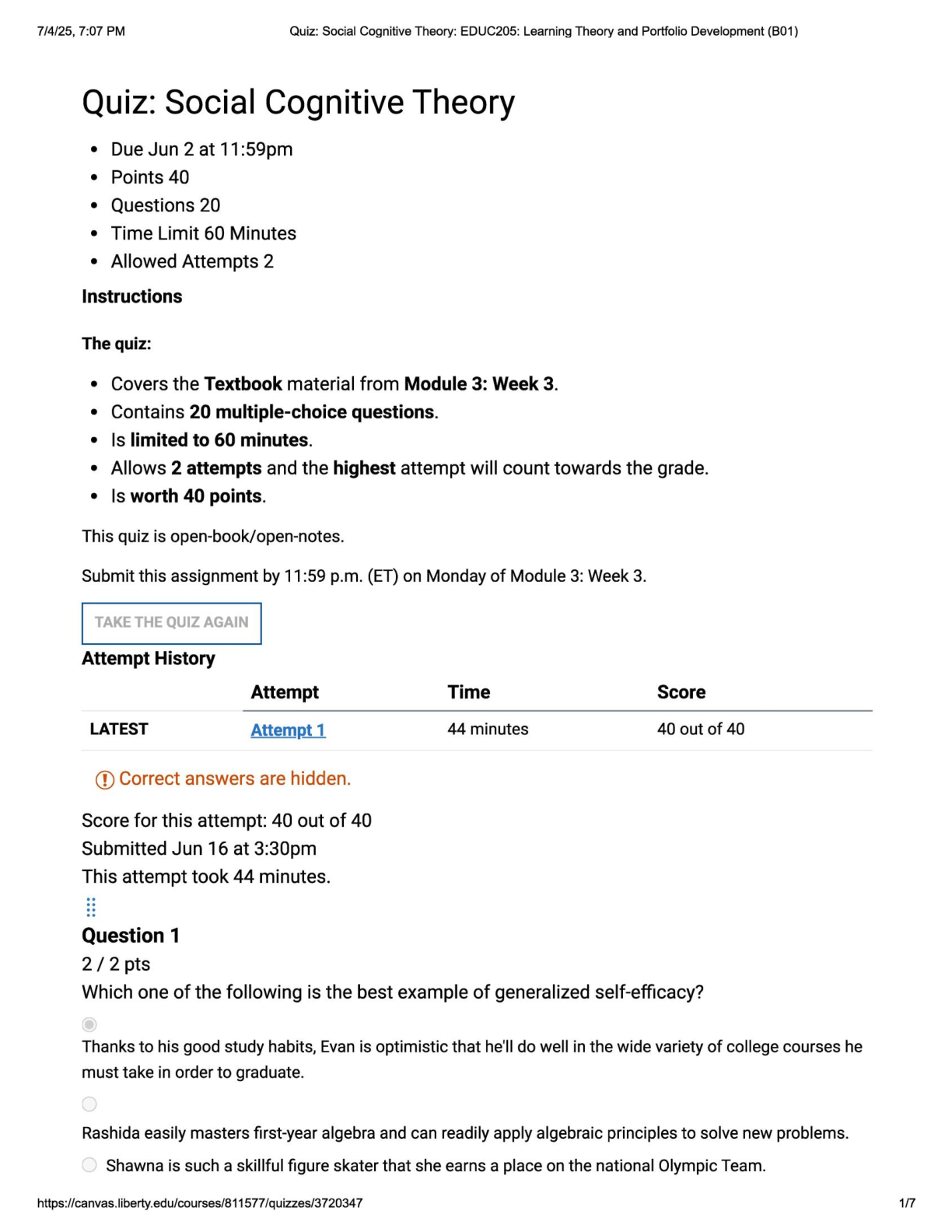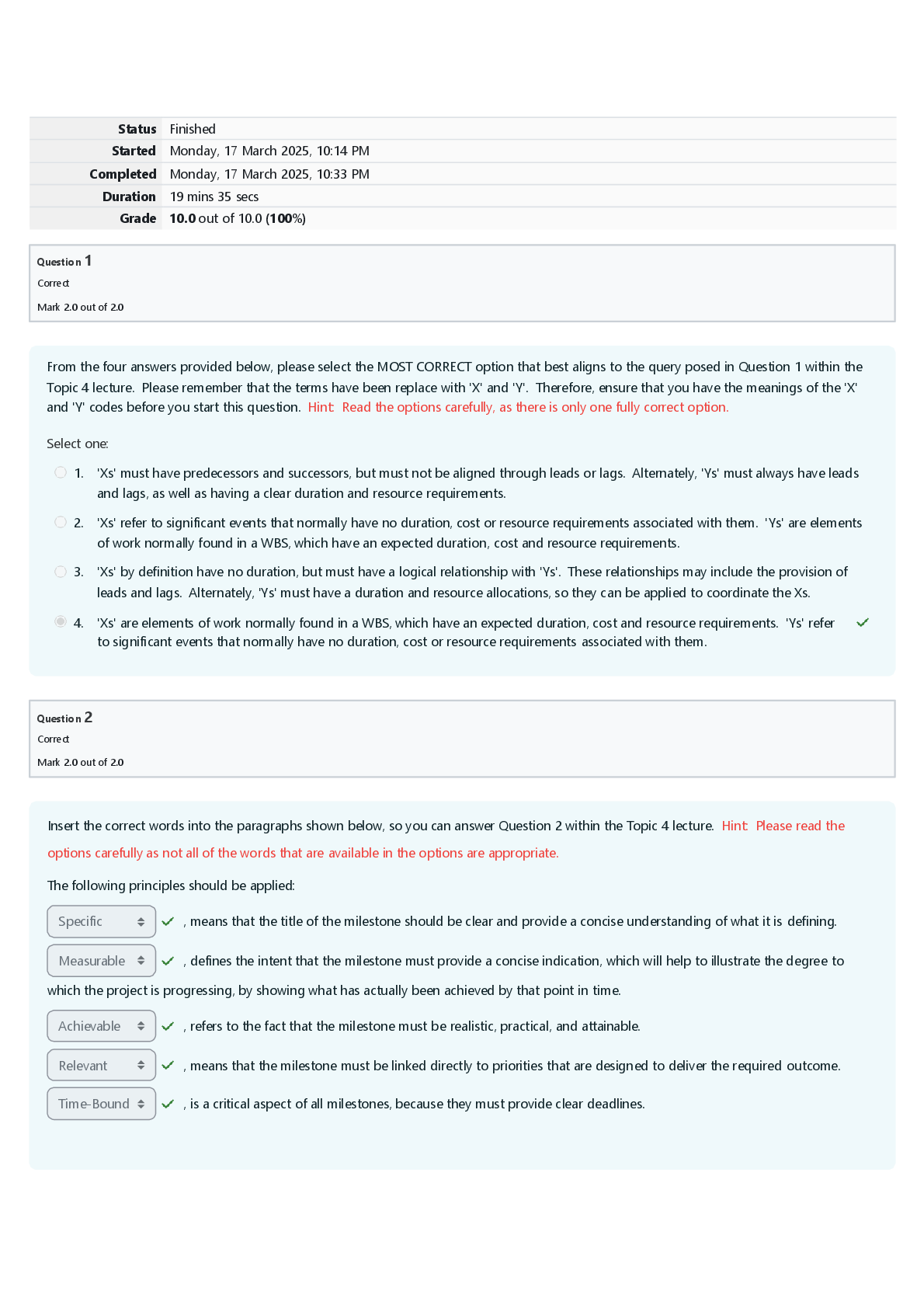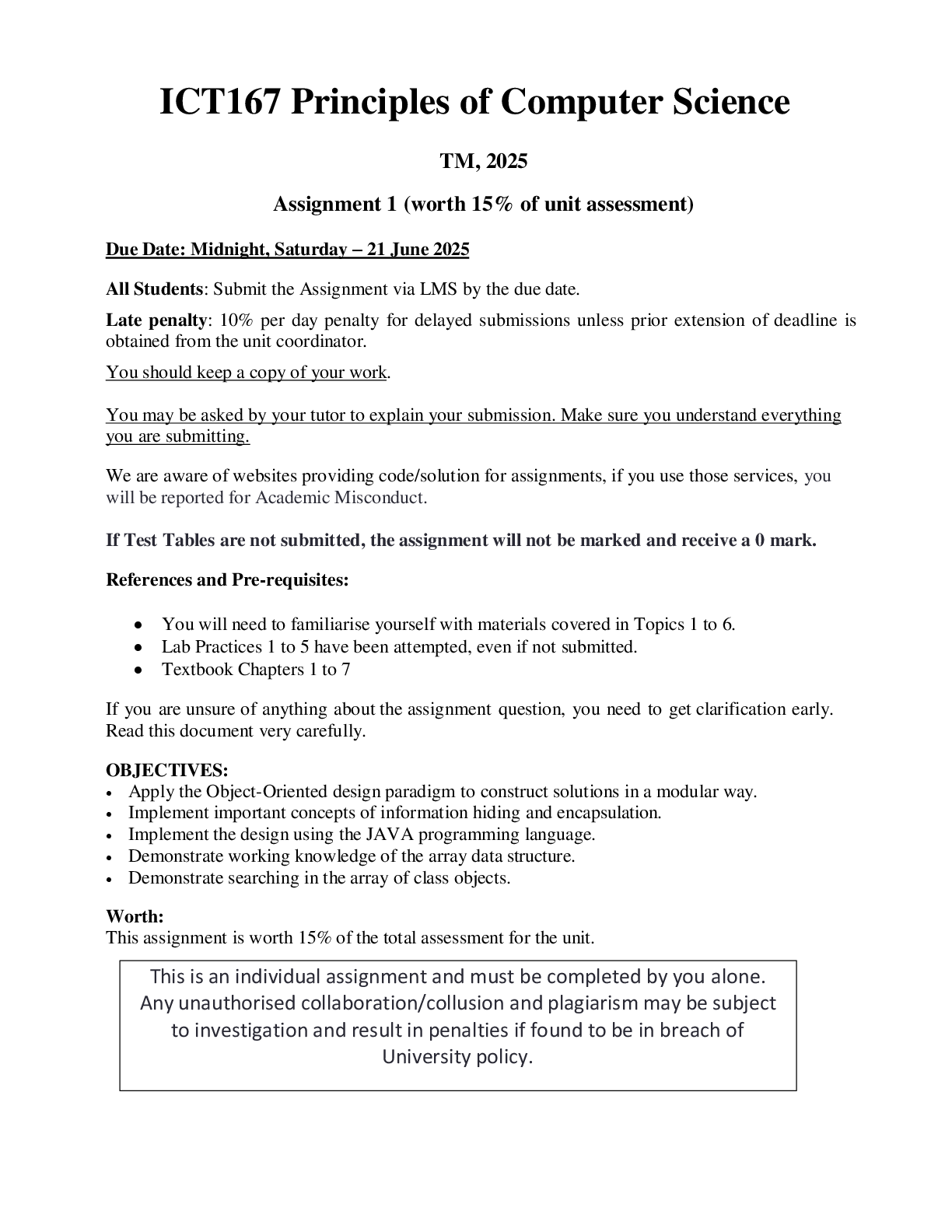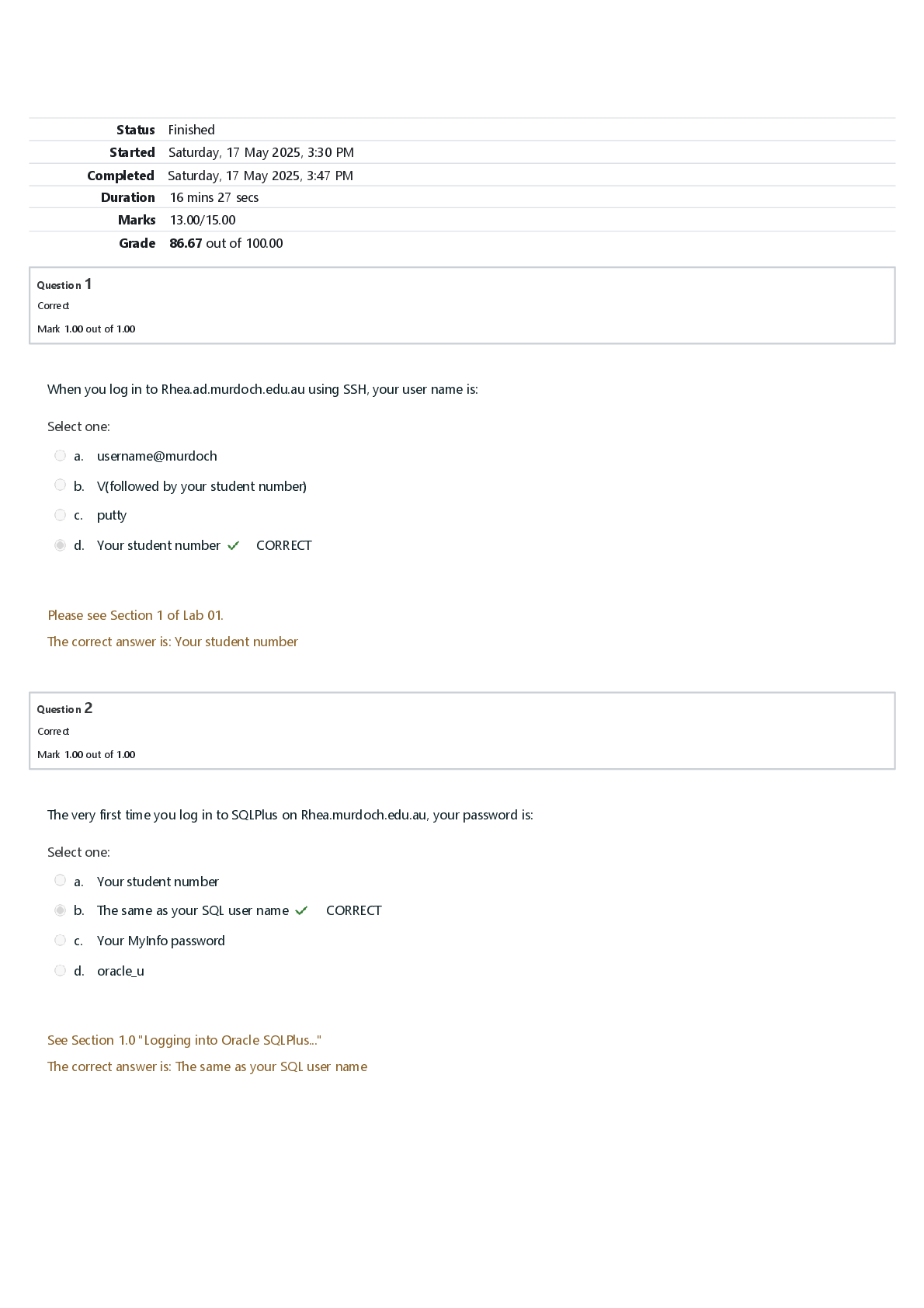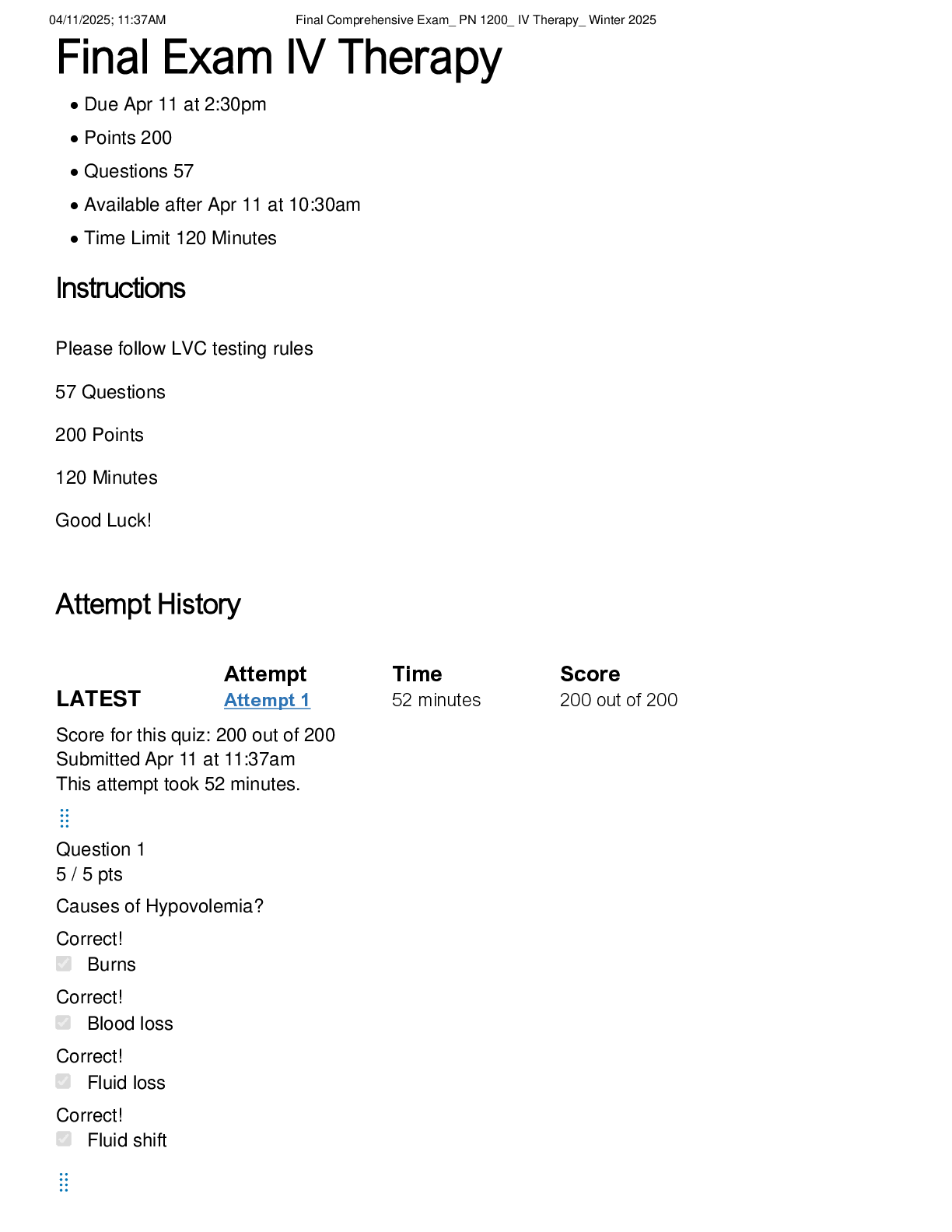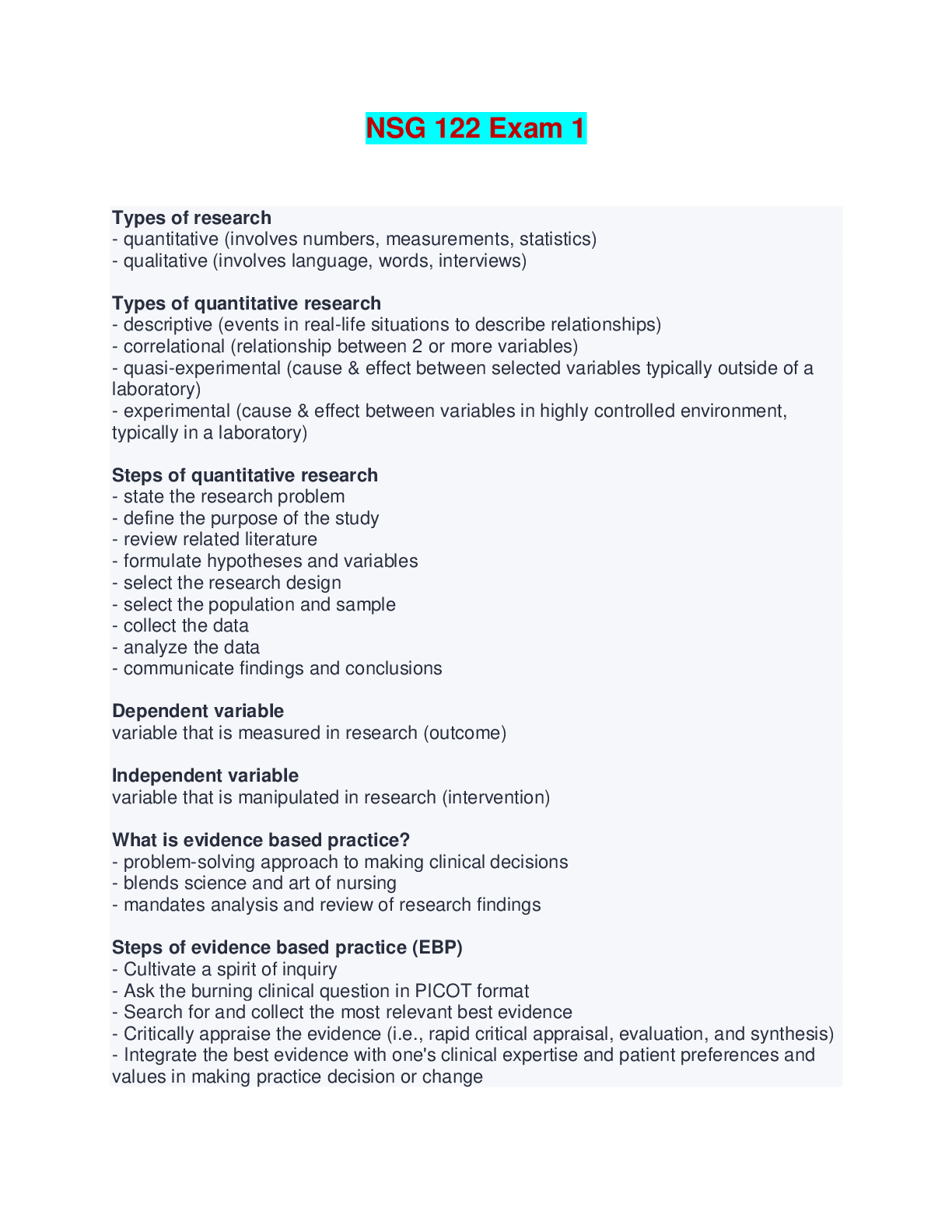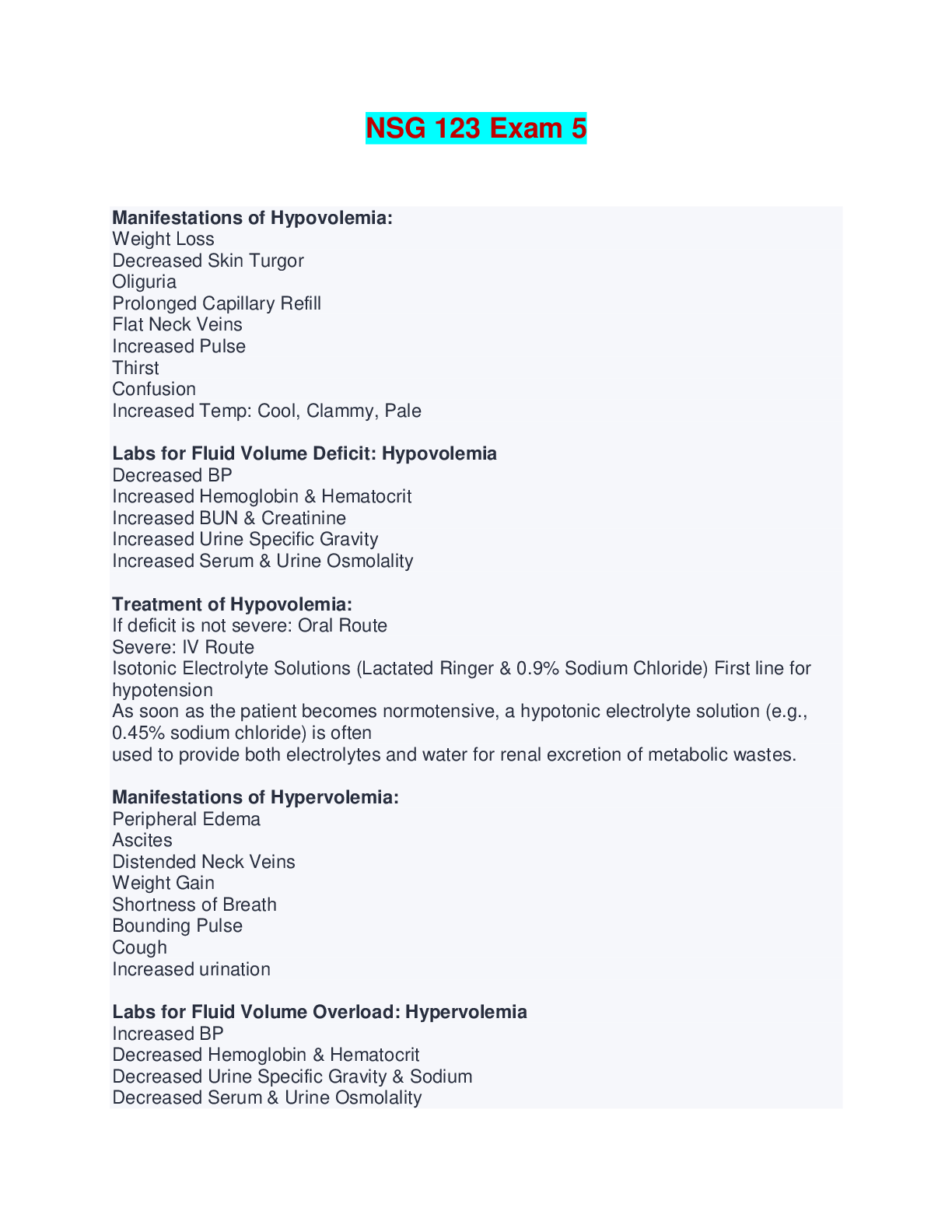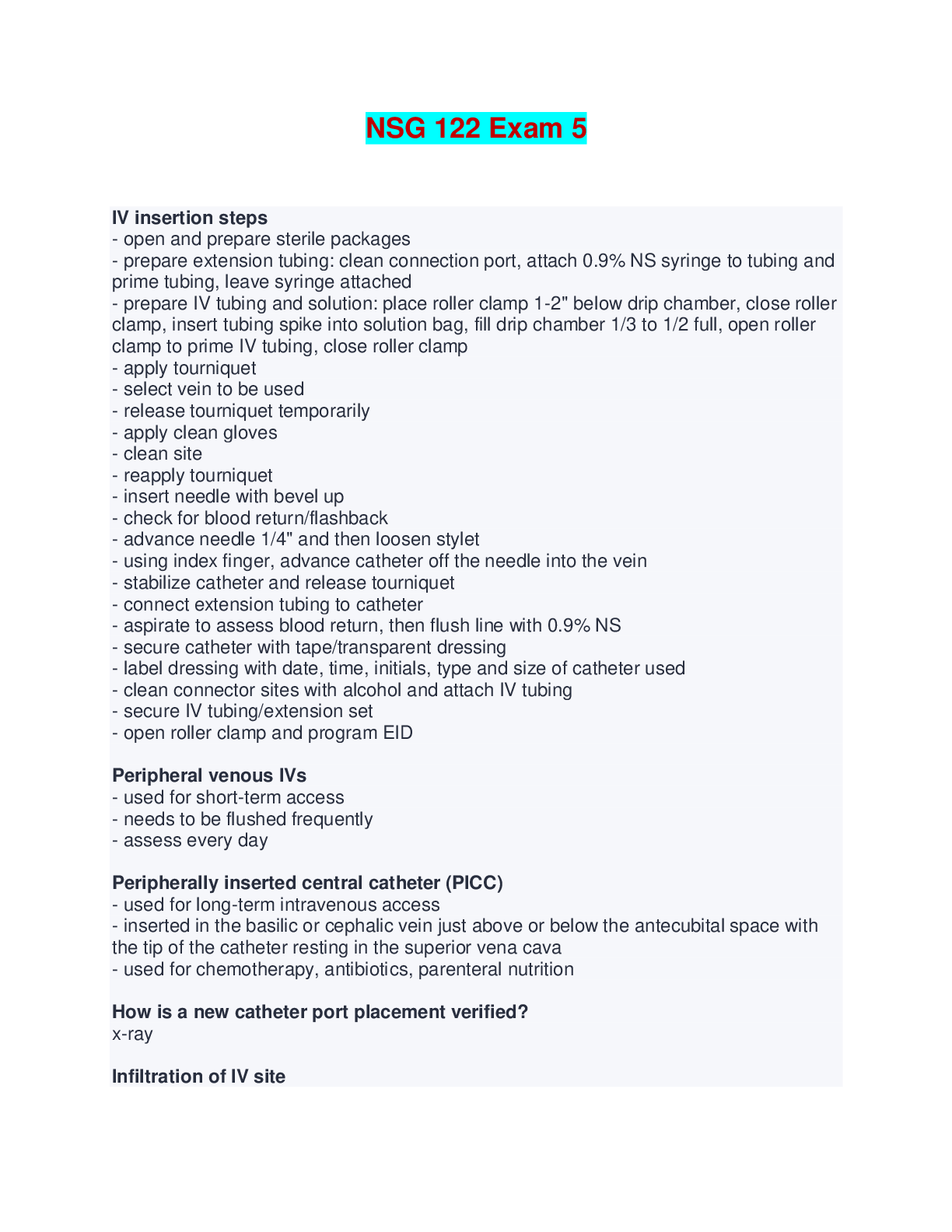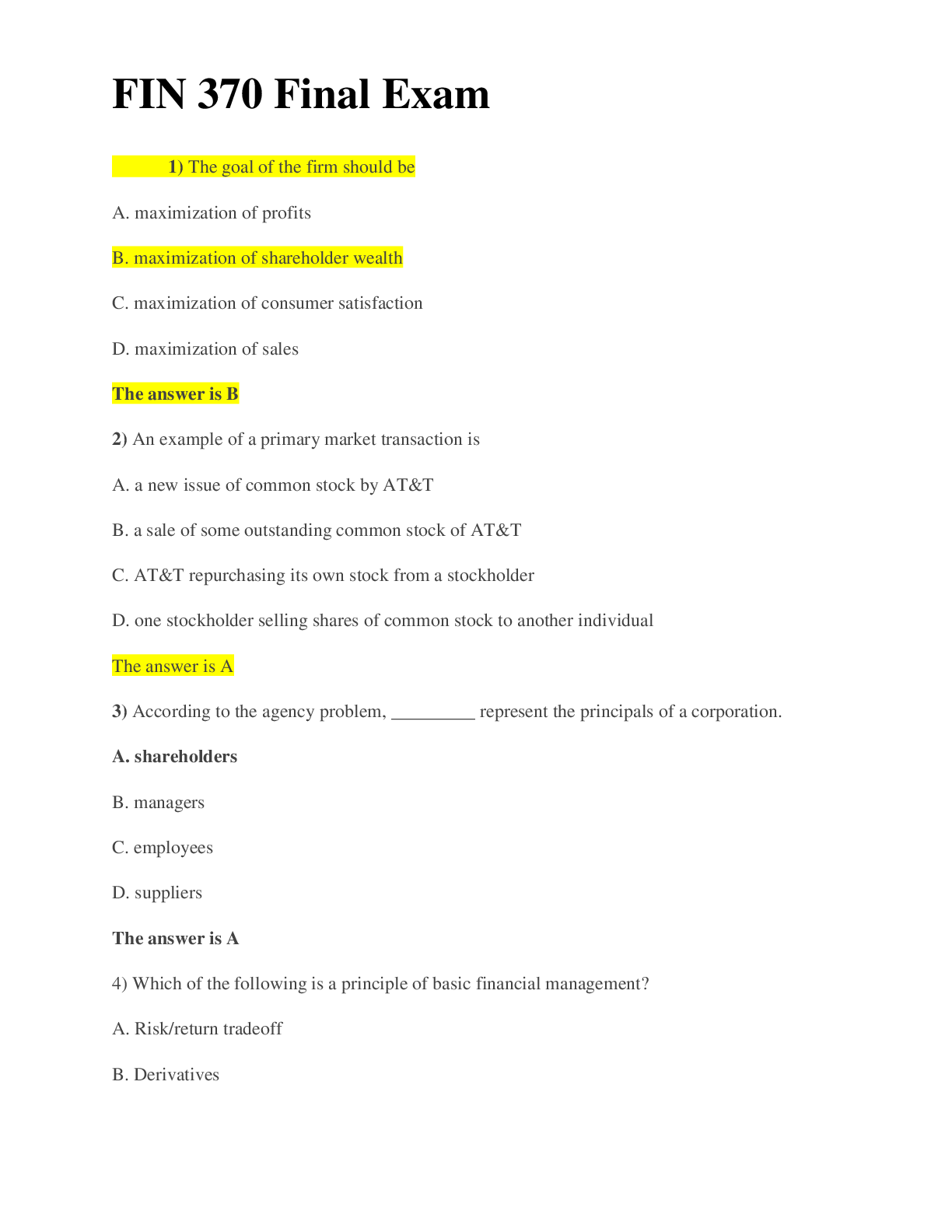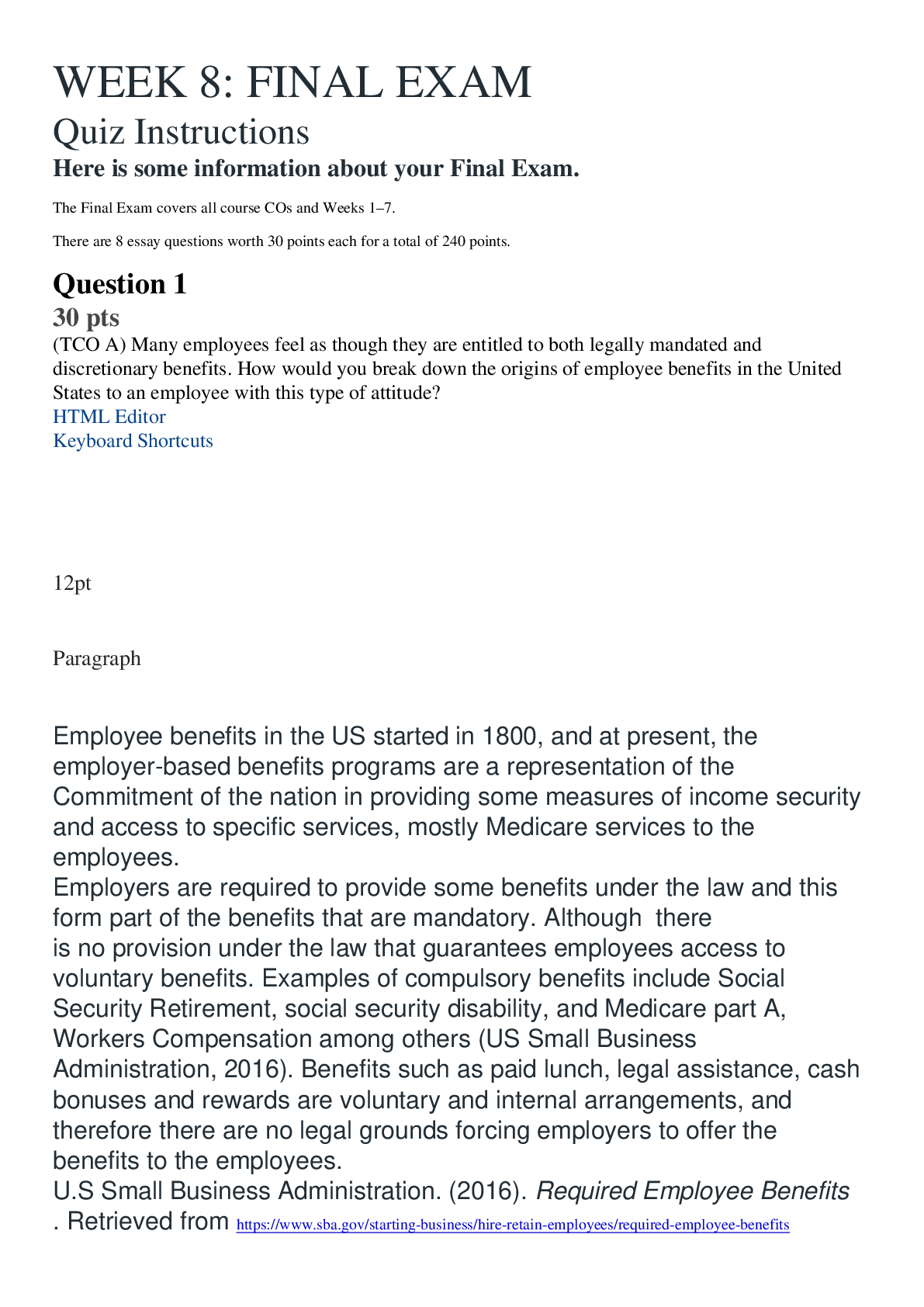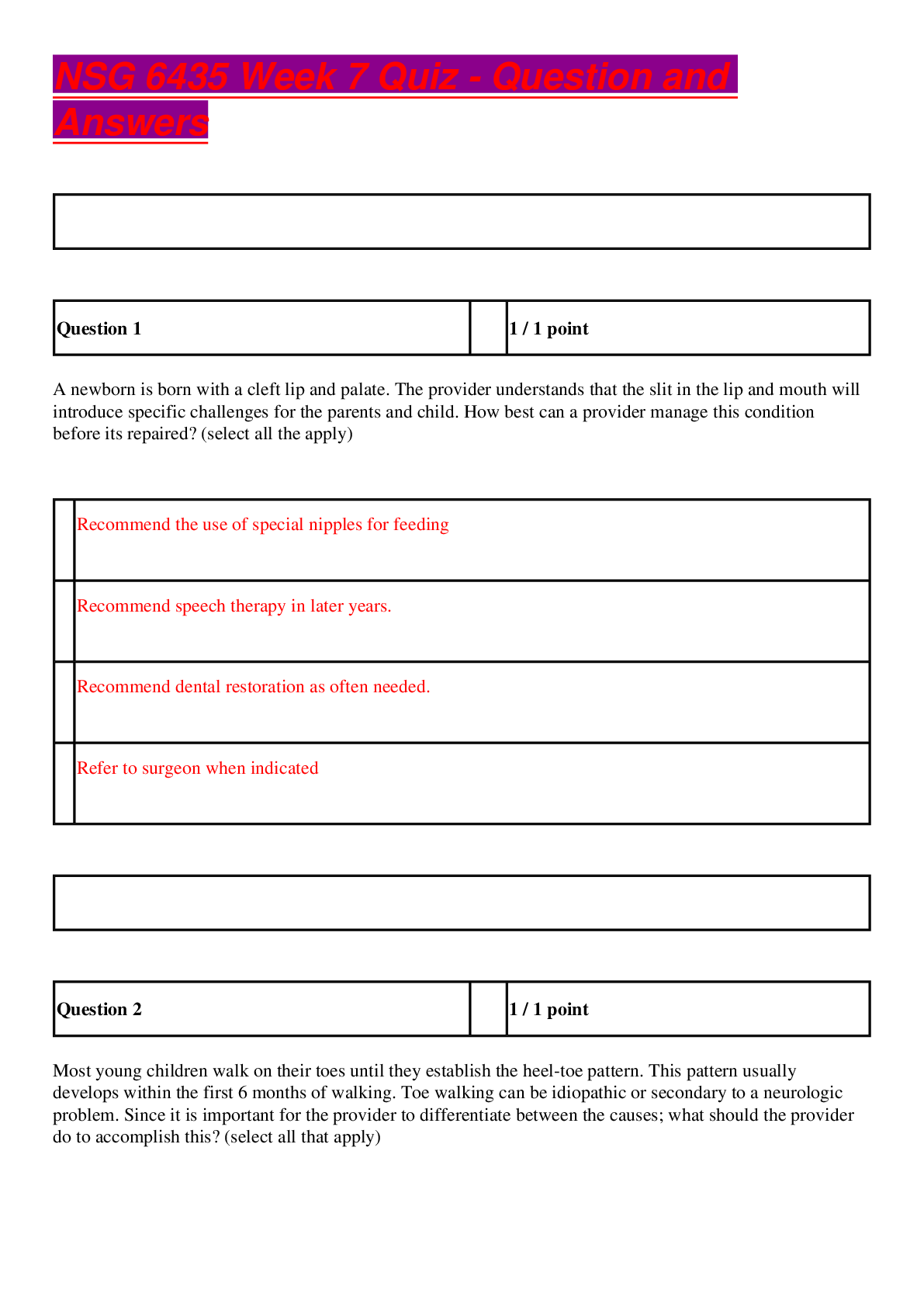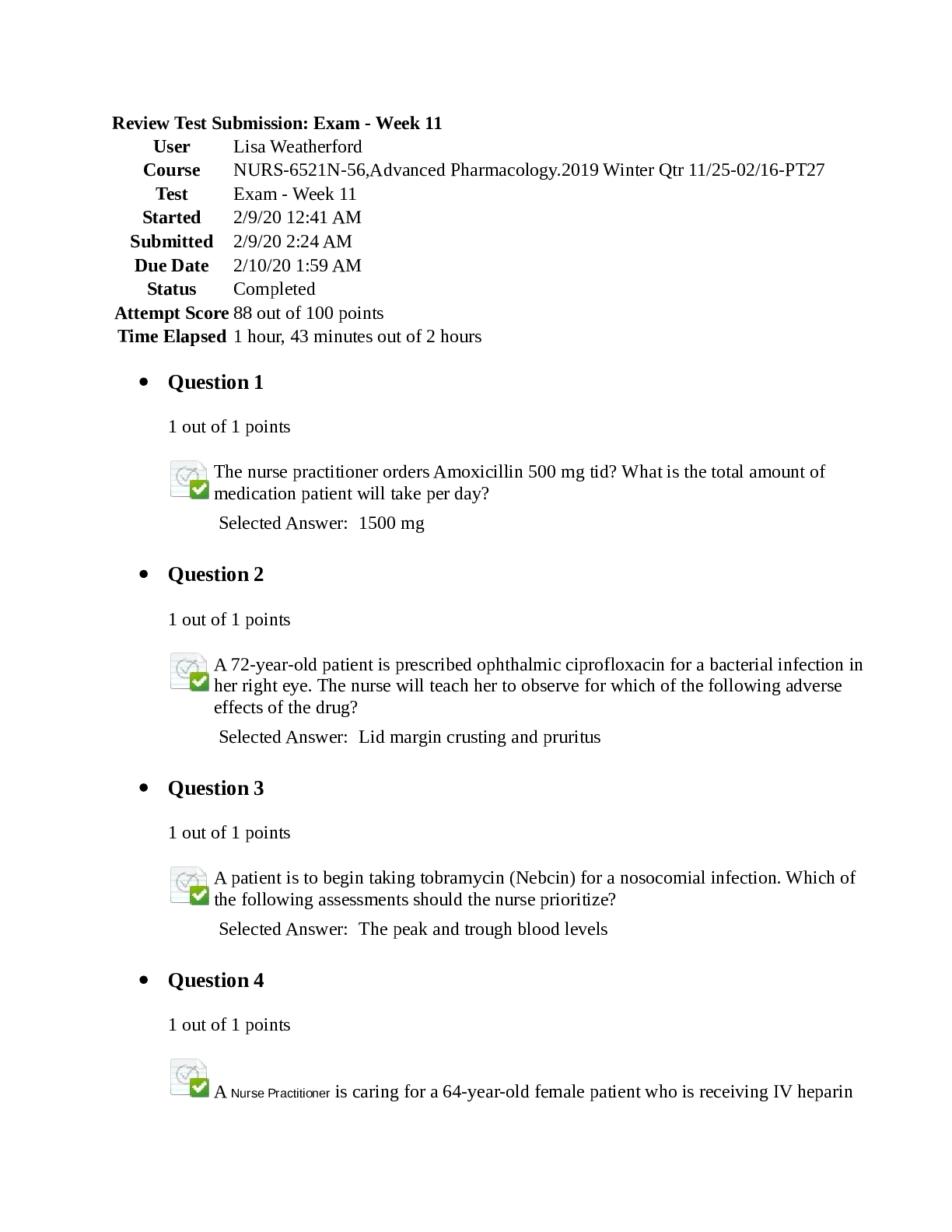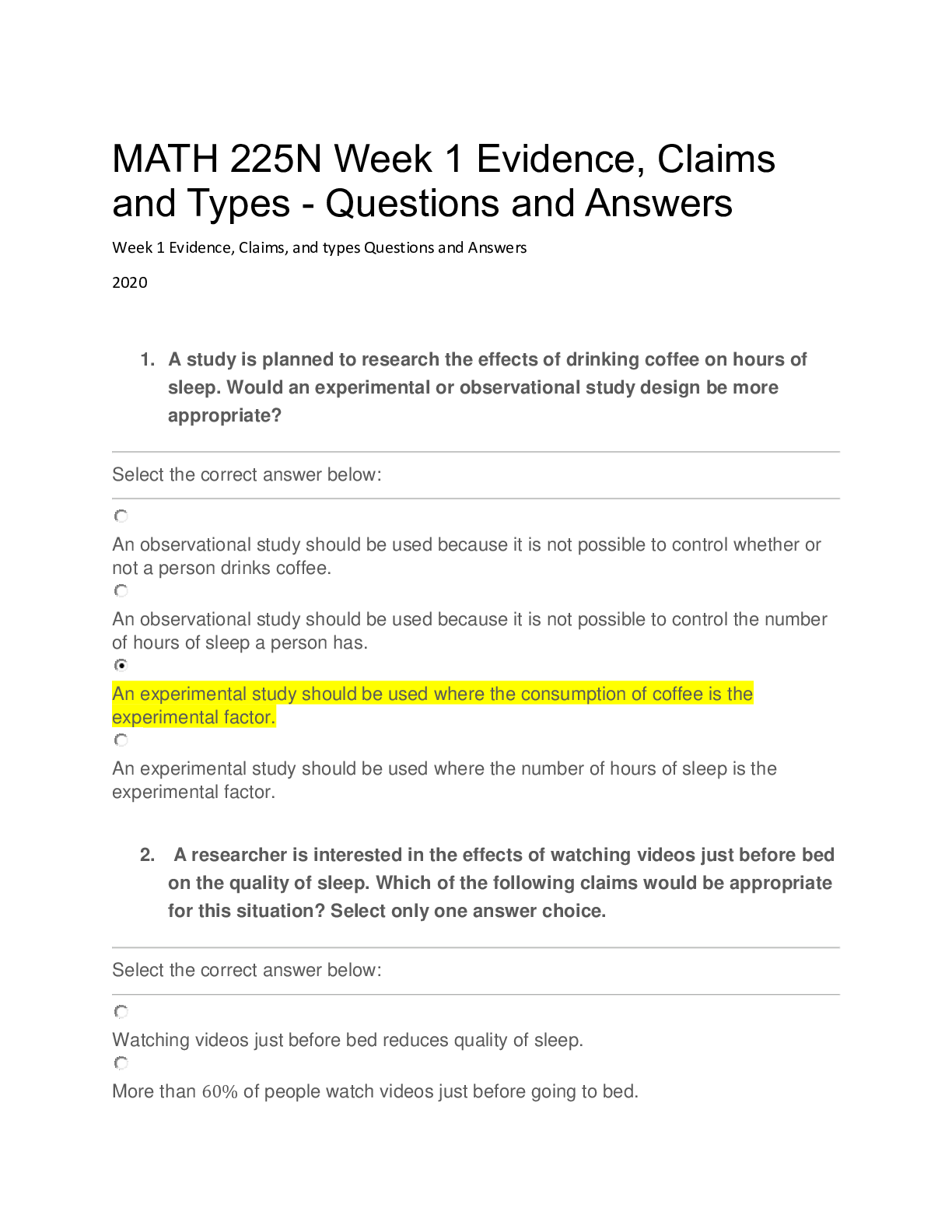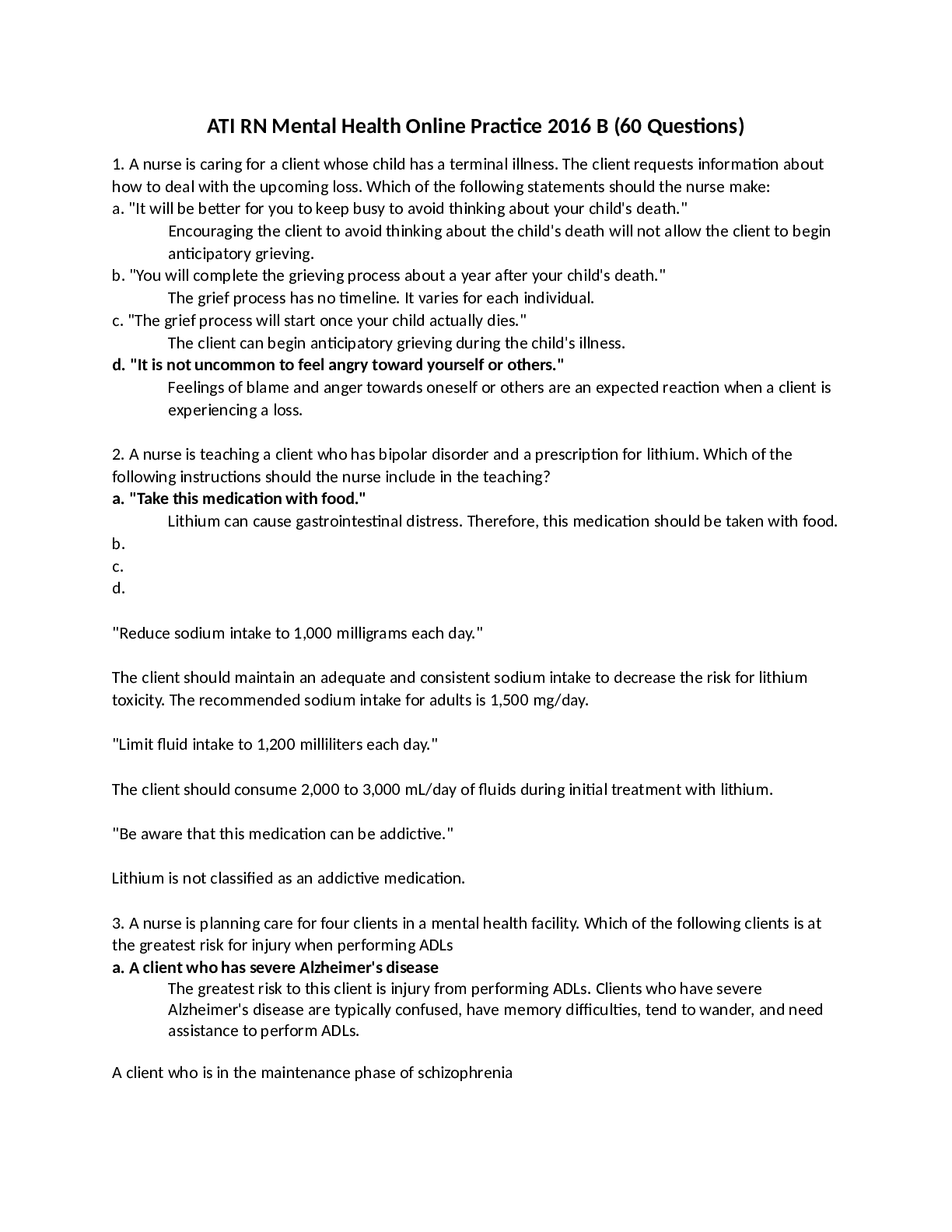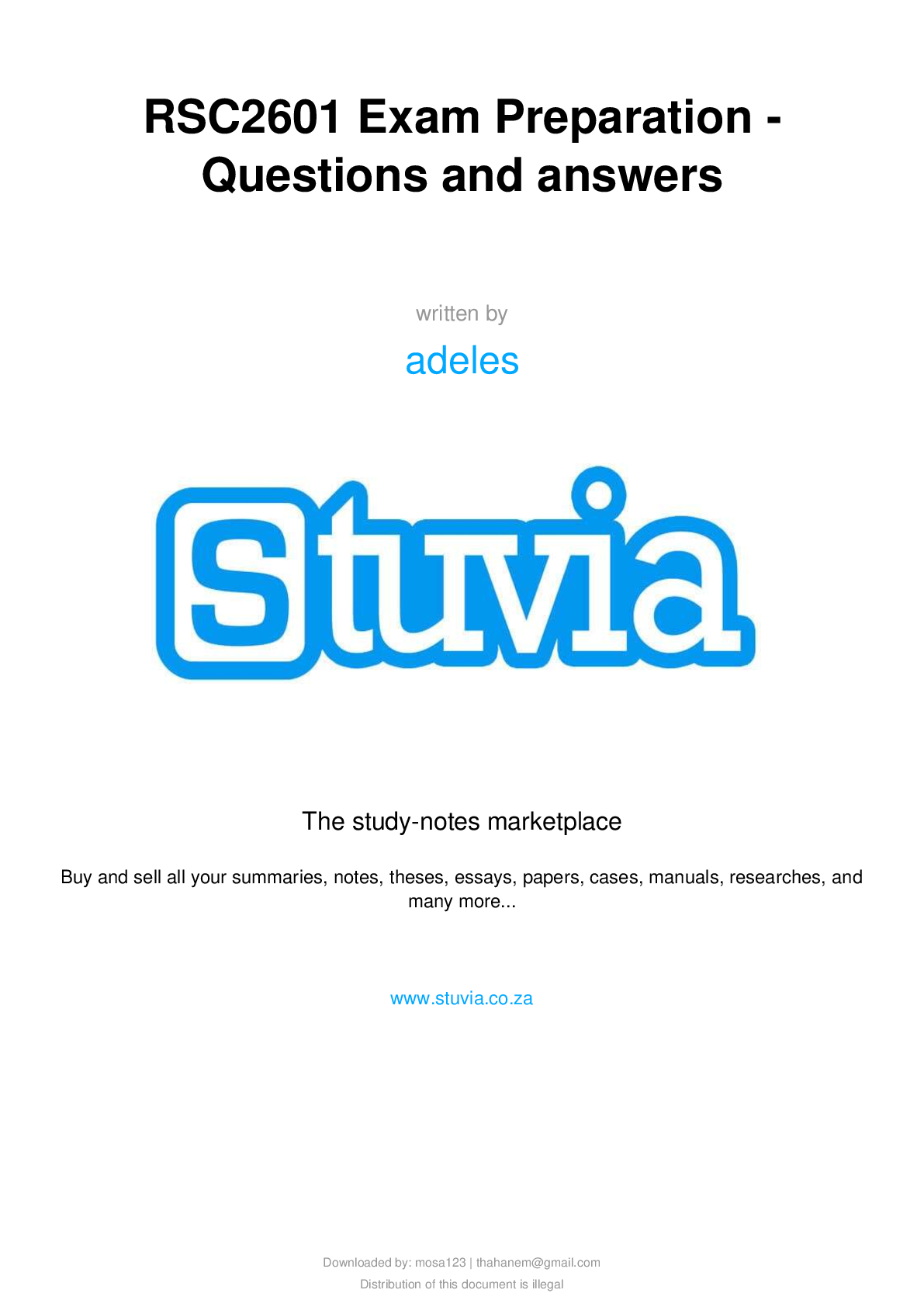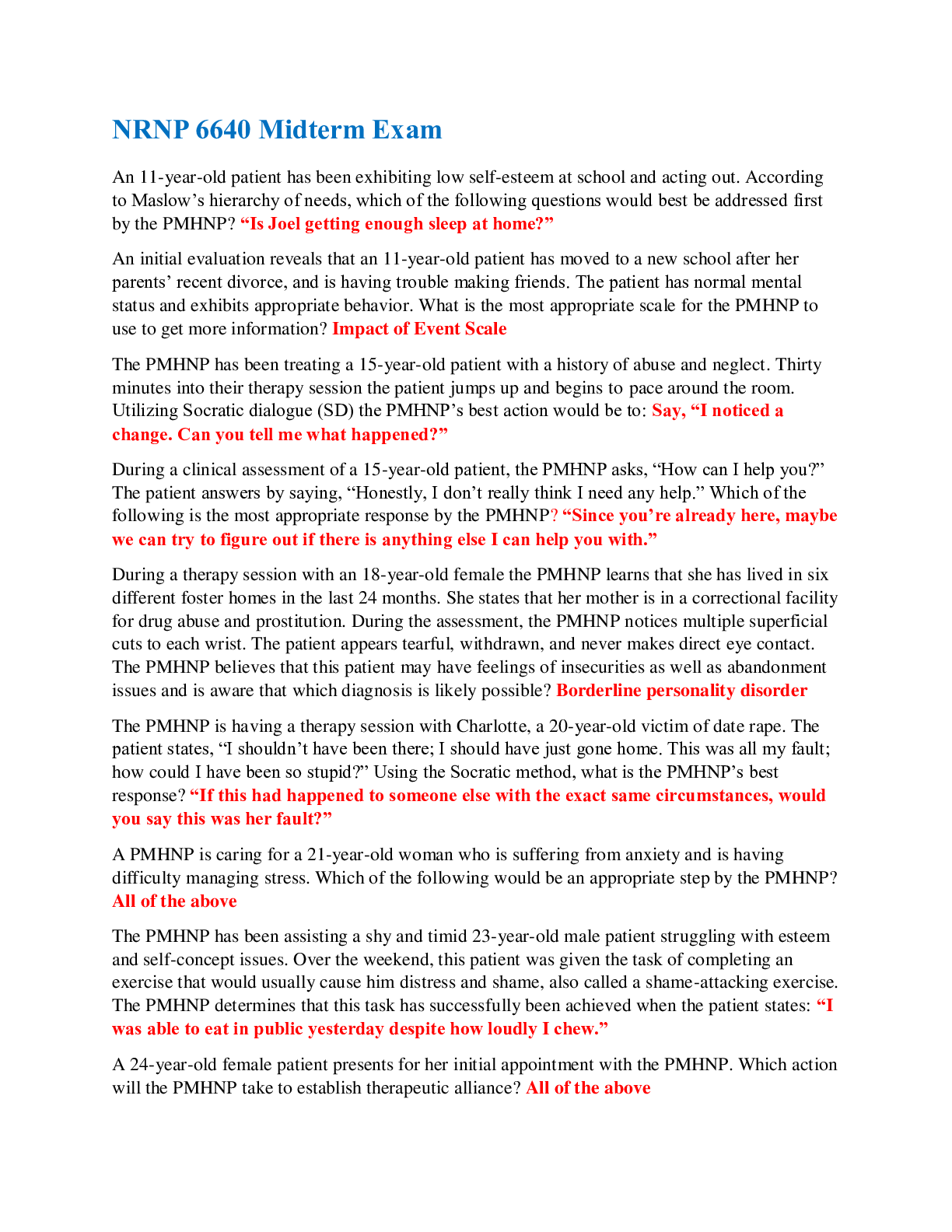Pharmacology > EXAM > NSG 533 Advanced Pharmacology Exam - Questions and Answers (All)
NSG 533 Advanced Pharmacology Exam - Questions and Answers
Document Content and Description Below
NSG 533 Advanced Pharmacology Exam - Questions and Answers EP is a 38-year-old female patient that comes in for diabetes education and management. She was diagnosed 12 years ago and states lately s... he is not able to control her diet although she continues a 1600 calorie diet with appropriate daily carbohydrate intake (per dietitian prescription) and walks 40 minutes every day of the week. She states compliance with all medications. She denies any history of hypoglycemia despite being able to identify signs and symptoms and describe appropriate treatment strategies. PMH: T2DM, HTN, obesity, depression, s/p thyroidectomy due to thyroid cancer FmHx: Noncontributory SHx: (−) Smoking, alcohol use, past marijuana use while in high school Medications: Metformin 850 mg tid, glipizide 20 mg bid, lisinopril 20 mg daily, sertraline 100 mg daily, multivitamin daily Vitals: BP 128/82 mg Hg; P 72 beats/min; BMI 31 m/kg2 Laboratory test results: Na 134 mEq/L, K 5.4 mEq/L, Cl 106 mEq/L, BUN 16 mg/dL, SCr 0.89 mg/dL, glucose 128 mg/dL; A1C 7.8% Based on EP's profile above, which of the agents would be able to obtain an A1C goal of less than 7% and would be appropriate in the patient? Please provide an explanation of appropriateness or lack thereof. Exenatide - Exenatide (Bydureon) once weekly has been able to demonstrate weight loss and decrease A1C% by 0.7% to 1.2% in clinical trials; however it is contraindicated for EP due to the self-reported history of thyroid cancer. Dapagliflozin - Dapagliflozin (Farxiga) is contraindicated in this patient due to hyperkalemia which could be made worse by this drug. The package insert does not indicate a specific potassium concentration cut off to no longer use this medication; however, there are better choices in this patient. Sitagliptin - Sitagliptin (Januvia) is able to obtain an A1C goal of less than 7% based on clinical trials and currently the patient does not have any cautionary objective measures to not use this medication. DPP-IV inhibitors are weight neutral. DPP-IV inhibitors can be used in patients taking sulfonylureas; however, it may be recommended to reduce or stop the sulfonylurea dose. Acarbose - Acarbose (Precose) is not recommended for initial management and is associated with significant GI side effects. More information would be needed regarding fasting and post-prandial numbers. In addition, adding acarbose would only lower A1c by 0.8% at best and therefore would not achieve the desired A1C goal of <7% JR is a 68-year-old African American man with a new diagnosis of T2DM. He was classified as having prediabetes (at risk for developing diabetes) 5 years before the diagnosis and has a strong family history of type 2 diabetes. JR's blood pressure was 150/92 mm Hg. His laboratory results revealed an A1C of 8.1%, normal cholesterol panel, and normal renal/hepatic function were noted with today's laboratory test results. Past medical history: Hypertension (diagnosed 4 y ago) Hyperlipidemia (d [Show More]
Last updated: 2 years ago
Preview 1 out of 23 pages
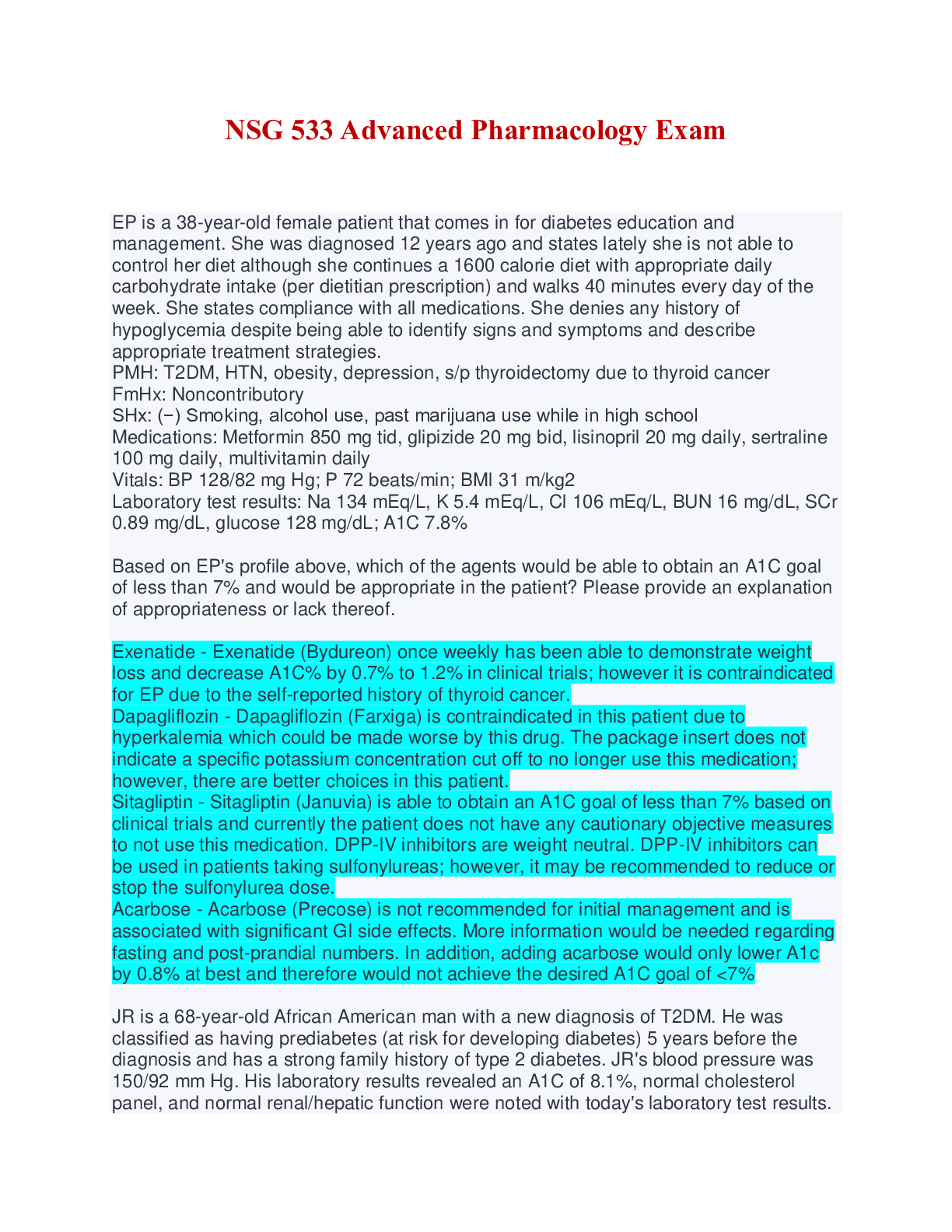
Buy this document to get the full access instantly
Instant Download Access after purchase
Buy NowInstant download
We Accept:

Reviews( 0 )
$14.00
Can't find what you want? Try our AI powered Search
Document information
Connected school, study & course
About the document
Uploaded On
Jan 28, 2023
Number of pages
23
Written in
Additional information
This document has been written for:
Uploaded
Jan 28, 2023
Downloads
0
Views
164

